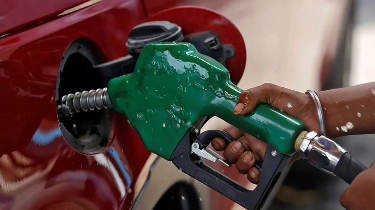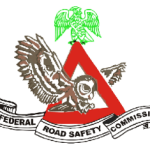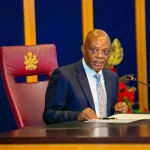The Federal Government recently disclosed plans for Nigerians to pay a five percent tax on every 10 litres of fuel purchased. Though the implementation date remains unclear, the proposal has triggered widespread backlash from the public.
Finance Minister and Coordinating Minister of the Economy, Wale Edun, who announced the policy in Abuja, explained that the five percent charge isn’t a new tax. He said it stems from a provision in the 2007 Federal Road Maintenance Agency (FERMA) Act. According to Edun, its inclusion in the upcoming 2025 Nigeria Tax Administration Act is meant to improve consistency and clarity in tax laws.
“Including this surcharge in the 2025 Act doesn’t mean it’s being immediately enforced,” Edun clarified. “This has existed since 2007, and we’ve not issued or planned any order to start collecting it.”
Despite these assurances, the policy has ignited significant public dissatisfaction. Many Nigerians are skeptical, citing past experiences like the sudden removal of fuel subsidies, which led to a dramatic jump in petrol prices—from ₦167 per litre to as high as ₦1000 in some regions.
Critics argue that the fuel subsidy removal worsened the nation’s economic conditions, leaving citizens grappling with rising costs and stagnant wages. The proposed fuel tax is seen as another blow to the already burdened populace.
Social media platforms have been flooded with debates over the pros and cons of the plan. On the streets, public sentiment is largely negative. Some Lagos residents, for instance, have strongly opposed the policy, urging the government to abandon it.
Taiwo Oladosun, a real estate agent, criticized the plan, saying it would worsen the financial struggles of everyday Nigerians. “People are barely managing as it is. Adding another tax just makes life harder,” he said.
Johnson Olagunji emphasized the need for proper oversight if the tax is implemented. He called for monitoring of fuel stations to ensure that consumers receive accurate fuel quantities, saying, “One litre should be one litre. The government must enforce this to avoid cheating buyers.”
A daily commuter, Gabriel Adigun, expressed concern over rising transportation costs. “If this tax is implemented, people like me will suffer the most. We have families to feed, and every naira counts,” he said.
Motorcycle rider Ozo Darlington was more blunt: “We’re already paying too much. Are they expecting us to pay tax for the air we breathe next?”
Fuel attendants also weighed in. Kikelomo Oluwatosin expressed uncertainty about how the new policy would be enforced, while Kingsley Ibe lamented the lack of visible improvements despite rising taxes. “We keep paying more, but nothing gets better. Where’s the money going?” he asked.
Major organizations such as the Nigeria Labour Congress (NLC), Trade Union Congress (TUC), and the Manufacturers Association of Nigeria have also voiced strong opposition. Prominent political figures, including Peter Obi of the Labour Party, joined in the condemnation.
In a post on X (formerly Twitter), Obi criticized the government for piling more pressure on citizens at a time when many struggle to afford transportation. He questioned the government’s priorities, especially after claims that national revenue targets had been met.
“If we’ve achieved revenue goals, why impose more hardship instead of investing in education, healthcare, and poverty reduction?” Obi asked. He also pointed out the sharp rise in Compressed Natural Gas (CNG) prices, despite earlier government promises of subsidization.
He urged the administration to delay any new taxes until citizens experience real improvements in their standard of living. “Leadership is about alleviating suffering, not adding to it,” Obi said.

Posted inNews




